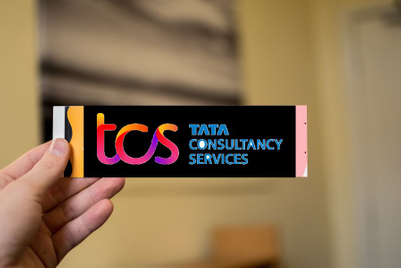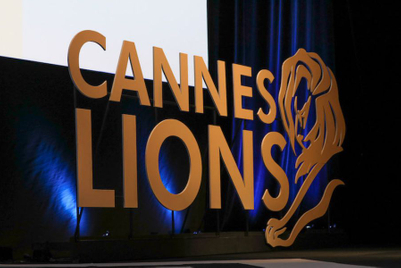Will safety concerns force flyers choose other airlines after the two disasters?
Dheeraj Sinha (DS): I don’t think as a flyer or from the brand perspective you can blame the airline for the incidents. Neither of the two incidents has happened due to equipment failure or lack of training of manpower or other reasons. The worry in people’s mind is more ‘ritual’; it’s more to say, ‘I wish nothing bad happens’. The fear is more generic with flying than with a brand of airline. People have simply realised that flying as an idea itself is getting scarier. It’s more a category issue than a brand problem.
Ramanujam Sridhar (RS): This is a very high involvement category in the sense that it involves the flyer’s safety. There are lots of people who are worried about the process and the risks involved with flying. So every time something negative happens, you tend to be a little extra careful. There is definitely going to be an issue, and there is definitely going to be an impact in the short term. Whether it is going to have a long term impact, only time will tell.
Or, will they be convinced that what happened could have happened to any airline? That it was no fault of the airline?
DS: It does bring unwanted publicity to the brand and if you are the owner of that brand, it can frazzle you a bit. But I think consumers by and large are practical and knowledgeable. They are practical in the sense that if I have to go to KL from Mumbai and if Malaysia Airlines offers me a direct flight, then it doesn’t make sense to opt for Singapore Airlines which has a stopover at Singapore. It would take longer and cost me more. The chance of another MH370 happening is also very low. So the practicality will weigh on you. Secondly, people are blaming it more on the category and how times have changed, and how flying is unsafe, rather than blaming it on the brand.
RS: Right now if the flyers have an option then they will certainly look at them. And other things being equal they might actually shop around also. But I feel that over a period of time, the issue can be resolved.
Will consumer reactions to MH17 and the earlier (missing flight episode) be different?
DS: Yes, the reactions will be different. I think in the case of MH370, it is still a mystery as to what happened. There are many conspiracy theories floating around and people aren’t buying the fact that the flight just vanished. The question is still not answered. But for MH17, everyone knows what happened and therefore people are blaming the politics around it and the greed of certain countries. I think Malaysia Airlines the brand is a small part of that conversation.
RS: I don’t know whether it will be different but it will be a reiteration of the fact that there is a problem. Definitely, two accidents happening within a very short time frame is an issue. I may not know the extent of what happened in each case but I know that this airline seems to have frequent problems. Those are the things that will cloud the minds of consumers.
Is there any scope for sympathy for the airline?
DS: Right now, people are sitting on the fence because the brand has not made any overture. It has neither gone out on a limb nor is it trying to make an attempt to smoothen the hurt. So I don’t think anything has happened to move sympathy towards the brand. Typically as brand managers we get worried; we freeze our feelings and don’t do anything and believe that not doing anything is the best thing. The brand could make some soft gestures saying, ‘Yes, this has happened. But, we are concerned about it.’ This would help assuage a little bit of the worry.
RS: Probably, yes. Customers who have had positive experiences with the brand would have sympathy for it. In business, we say that brands should build an ‘Equity of goodwill’ with customers. So that when the bad times do come, the customers remember that the brand has done good for them and it’s just a case of a difficult phase it is going through. When you don’t have anything to fall back on, it is difficult for the consumers to have faith in the brand.
What could the airline do to alleviate flyer concerns?
DS: The brand needs to make soft gestures. It cannot release an advertisement. Doing that will make it sound very preposterous and high handed. It should be done in a very sensitive way. Communication is very important. So far, I haven’t seen any communication in public domain acknowledging what is happening, showing their concern and that they are at it. That is like an organisation going through a bad time and the CEO not speaking.
The brand must engage in a matter of fact communication and to a larger audience and not just the people that are affected by the incident. They need to come out and make people feel that they are there for them, they are concerned and making every gesture possible to make sure that people are safe. It could be activation, digital media, and a note from the CEO: anything that has gravitas and is soft.
RS: Now more than ever, Malaysia Airlines needs to reassure its constituents and prospective flyers that all requirements are being adhered to and that safety is paramount to the brand. Right now, whatever they say might fall on slightly sceptical ears but over a period of time it would help. Especially, since they have had an excellent track record for several years.
Take the new Lufthansa commercial. I can assure you that the food on the flight is bad, that the service is very cold. But in the new TVC, the brand has taken the problem head on. I am not saying that is the solution. I am saying that if there is a perception of the brand which is going to hurt it, then I need to do something about it quickly.
There should be frequent reiterations of the fact that the brand is taking necessary safety precautions.
(Published in the issue of Campaign India dated 8 August 2014)




.jpg&h=334&w=500&q=100&v=20250320&c=1)
.jpg&h=334&w=500&q=100&v=20250320&c=1)



.jpg&h=334&w=500&q=100&v=20250320&c=1)
.jpg&h=334&w=500&q=100&v=20250320&c=1)






.jpg&h=268&w=401&q=100&v=20250320&c=1)




